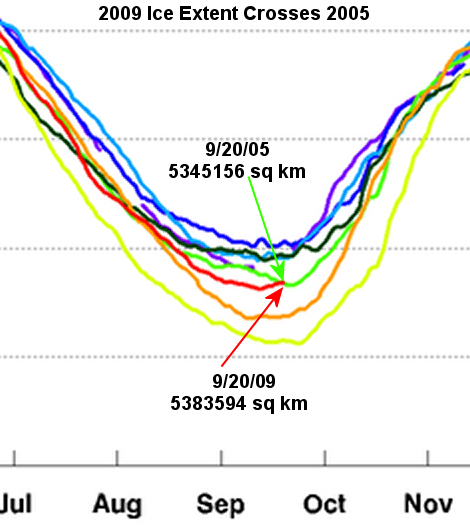How does water of such massive proportions, as the Pacific and Atlantic Oceans, lose heat?
If it is going to be losing heat, does it drop uniformly throughout the entire depth of the Oceans? Or, does heat loss come about through other mechanical means?
For example, does heat rise through the various depths and layers of the oceans, temporarily increasing the "layers" closer to the surface? Then as the heat loss continues, is it reasonable to expect that the surface areas will stop gaining the heat which is being lost from the lower depths? At some point, can we expect to see the surface temperatures dropping too? How long would that process take?
Or is the cooling of the Oceans accomplished by other mechanical means?
If it is going to be losing heat, does it drop uniformly throughout the entire depth of the Oceans? Or, does heat loss come about through other mechanical means?
For example, does heat rise through the various depths and layers of the oceans, temporarily increasing the "layers" closer to the surface? Then as the heat loss continues, is it reasonable to expect that the surface areas will stop gaining the heat which is being lost from the lower depths? At some point, can we expect to see the surface temperatures dropping too? How long would that process take?
Or is the cooling of the Oceans accomplished by other mechanical means?




